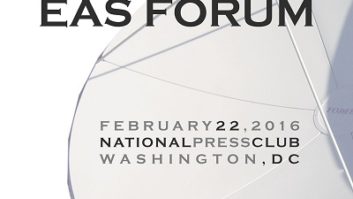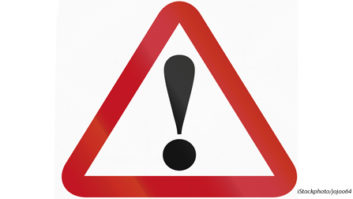A number of concerns were laid at the doorstep of the FCC on Tuesday by members of the House Energy and Commerce Committee, including a lack of progress on AM revitalization and concerns that the FCC is failing to tackle pirate radio issues seriously.
At an FCC oversight meeting on July 28, House Communications Subcommittee Chairman Greg Walden, R-Ore., shared a number of concerns over “the commission’s lack of adherence to a sound regulatory process,” including a lack of movement on revitalizing the AM band. FCC Chairman Tom Wheeler and Commissioner Ajit Pai were in attendance.
Ticking off a list of five areas of concern, Walden’s final issue was that “AM revitalization is grinding to a halt … and the review of properties is languishing.”
It has been nearly two years since the FCC adopted a Notice of Proposed Rulemaking that proposed to revitalize AM radio in two main ways: by identifying ways to enhance AM broadcast quality and by proposing changes to technical rules that would enable AM stations to improve their service.
However, Chairman Walden was the only congressman to broach the subject of AM revitalization during the session, and no questions on the issue were posed to either of the FCC commissioners.
“AM modernization is high on a number of our priorities,” Walden said in closing out the session.
Concerns were also raised over what one congressman perceived as the FCC’s languishing interest in tackling pirate radio stations.
Rep. Chris Collins (R-N.Y.) said he was concerned by the implication that the FCC does not have “the time and expense” to pursue all pirate radio violators. “To sum it up, we are extraordinarily disappointed that the FCC has said [pirate radio is] not a priority,” he said.
Collins also directly asked Wheeler if the FCC has directed its field offices to “step down and back away from enforcement” when it comes to pirate radio stations. Responded Wheeler: “I have heard that suggestion, but [that directive] did not come from me.”
Collins mentioned a letter that his office received the day before from the FCC that he said laid out some of the commission’s priorities. Wheeler responded by saying that the letter was not designed to say that pirate radio was of low importance, but rather to say that public safety must be a priority for the agency. Wheeler said the commission formed an interagency working group to address pirate radio issues.
The FCC chairman also noted the challenges in clamping down on pirate radio, comparing the search to a “game of Whac-A-Mole” where a pirate station pops up, is closed down and then pops up somewhere else. “One thing I encouraged in that letter is that Congress can also be helpful … by making it illegal to aid and abet the carrying out [of a pirate radio station],” Wheeler said. “We could use some additional authority [from Congress].”
Rep. Collins requested that the FCC chairman provide suggested regulatory language that would help the commission better crack down on pirate stations. “This is an important issue in New York,” Collins said.
“Words are words and actions are actions,” Collins added. “[We don’t want to hear that] ‘maybe someday if we’ve got nothing else to do, then we’ll see what we’ll find in pirate radio.’”










